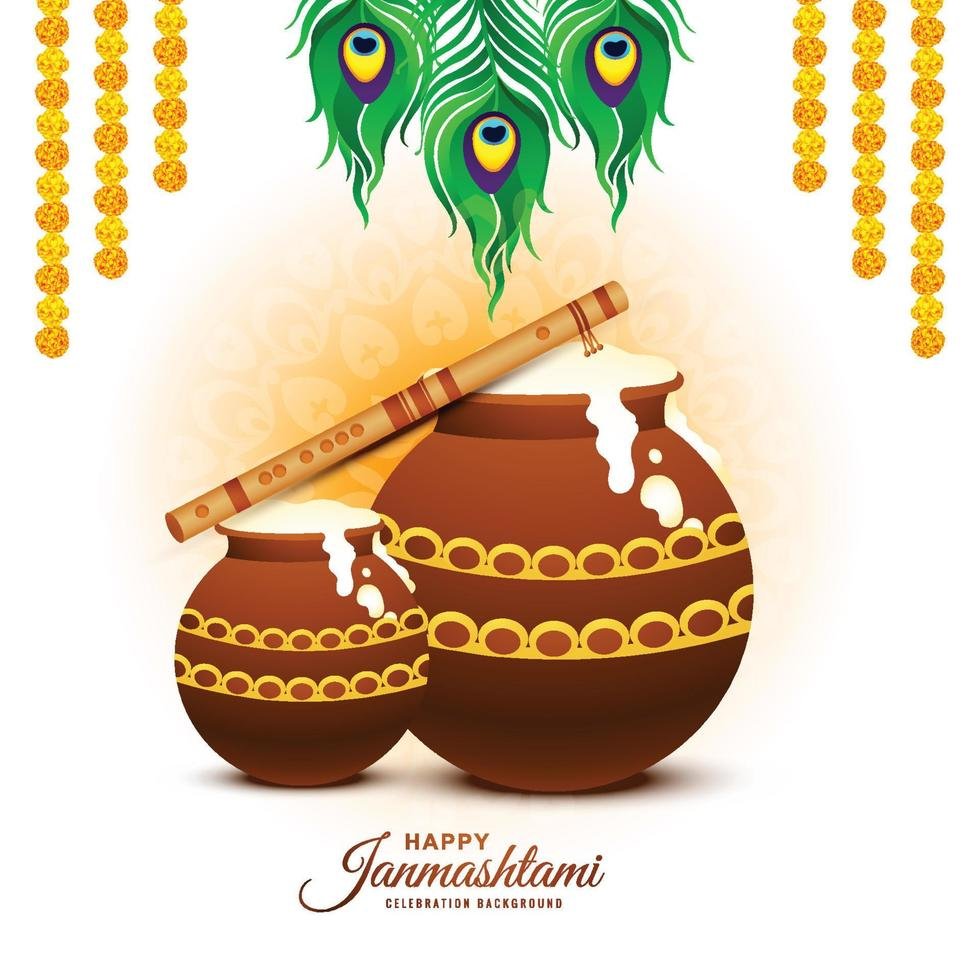Krishna Janmashtami is a joyous and auspicious festival celebrated annually to commemorate the birth of Lord Krishna, the incarnation of Lord Vishnu. This religious festival holds great significance for devotees worldwide, as it marks the divine arrival of Lord Krishna, who is revered as the epitome of love, wisdom, and righteousness.
During this time, devotees observe a day-long fast as a mark of their devotion and to seek blessings from Lord Krishna. Fasting is considered a way to purify the body and mind, allowing individuals to connect with the spiritual realm more deeply. However, while abstaining from solid foods, it is essential to be aware of the various foods that one can consume during this fasting period.
According to traditional guidelines, devotees can consume certain food items that are considered saatvik (pure) and in line with the spiritual nature of the festival. Some of the permitted foods include fresh fruits, dry fruits, dairy products like milk, yogurt, butter, and cottage cheese (paneer). These items are believed to be pure and offer nourishment to the body while maintaining the sanctity of the fast.
In addition to that, devotees can also indulge in dishes made from ingredients like singhare ka atta (water chestnut flour) and kuttu ka atta (buckwheat flour). These flours are versatile and can be used to create delicious pancakes, puris, and vrat-friendly sweets. They add a unique flavor and texture to the fasting meals, making the experience even more delightful.
However, it’s important to note that certain food items are strictly prohibited during the Krishna Janmashtami fast. These include grains, legumes, non-vegetarian items, onions, garlic, and certain spices. These restrictions are observed to maintain the purity and sanctity of the fast, as they are believed to distract the mind from spiritual contemplation.
Food items that can be consumed
Janmashtami celebrations are synonymous with milk and curd, so indulge in these dairy delights to your heart’s content. During fasting periods, you can relish shakes crafted from fresh fruits for a refreshing energy boost. Incorporating fresh or dried fruits into your diet is highly recommended to keep your body energized and bolster your immune system. Apples, bananas, blackberries, grapes, almonds, and walnuts are all excellent choices.
For an additional energy and immunity boost, consider Sabudana (sago) and Kuttu Ka Aata (buckwheat flour). Sabudana can be transformed into Khichadi or Kheer, while Kuttu Ka Aata can be used to prepare delectable paranthas. These ingredients not only provide sustenance during fasting but also contribute to your overall well-being during this auspicious occasion.
During Janmashtami fasting, you can enjoy a variety of food items that are in line with the dietary restrictions of the occasion:
- Milk and Milk Products: Milk, curd (yogurt), and buttermilk are commonly consumed during Janmashtami fasting.
- Fresh Fruits: Apples, bananas, blackberries, grapes, and other fresh fruits are acceptable choices.
- Dried Fruits: Almonds and walnuts are often included in Janmashtami fasting diets.
- Sago (Sabudana): Sabudana is used to prepare dishes like Sabudana Khichadi or Sabudana Kheer.
- Buckwheat Flour (Kuttu Ka Aata): Buckwheat flour is used to make paranthas, puris, and other dishes.
- Potatoes: Potatoes are a versatile ingredient and can be used in various fasting recipes.
- Rock Salt: Instead of regular salt, use rock salt (sendha namak) for seasoning.
- Nuts: Cashews, pistachios, and other nuts can be consumed in moderation.
- Milkshakes: Prepare milkshakes with fruits and nuts for a delightful fasting beverage.
- Sweets: Sweets made from permissible ingredients like milk, nuts, and fruits are enjoyed as prasad.
Food items that should not be consumed
During this particular day, irrespective of our usual dietary habits, refraining from meat consumption is considered essential. It’s a symbolic gesture of purity and restraint. Alongside abstaining from meat, many choose to avoid onions and garlic as well, as these ingredients are believed to stimulate the senses and may hinder the desired meditative state.
Packaged foods, especially those like chips, are also generally discouraged on this day. These processed snacks often contain additives and preservatives that are contrary to the principles of purity and simplicity that the day represents.
As for beverages, while tea and coffee are usually go-to choices to stay alert and active, they are advised against during this time. This is because both can lead to increased acidity, potentially causing discomfort such as nausea, heaviness, and even headaches. Instead, individuals may opt for lighter and more soothing options like herbal teas or simply water to maintain clarity and focus during their spiritual endeavors.
During Janmashtami fasting, there are specific food items that should be avoided to adhere to the dietary restrictions of the occasion:
- Grains: Grains like rice, wheat, and lentils are typically not consumed during Janmashtami fasting.
- Non-Vegetarian Food: Meat, fish, and eggs are strictly avoided during this period.
- Onions and Garlic: These pungent vegetables are not included in Janmashtami recipes.
- Common Salt: Regular table salt is substituted with rock salt (sendha namak).
- Certain Spices: Some spices like asafoetida (hing) are omitted in fasting recipes.
- Processed Foods: Packaged and processed foods, including chips and snacks, are best avoided.
- Baking Soda and Yeast: These are generally avoided in fasting recipes.
- Aerated Drinks: Carbonated beverages are not part of a fasting diet.
- Caffeinated Beverages: Tea and coffee, which can cause acidity, are usually discouraged.
- Alcohol: Alcohol is completely off-limits during this period.
- Excessive Oil and Ghee: While some oil or ghee is used in cooking, excessive use is discouraged.
It’s essential to consult with a religious or dietary expert for specific guidance on Janmashtami fasting rules and dietary restrictions, as they can vary based on bodily requirements.

